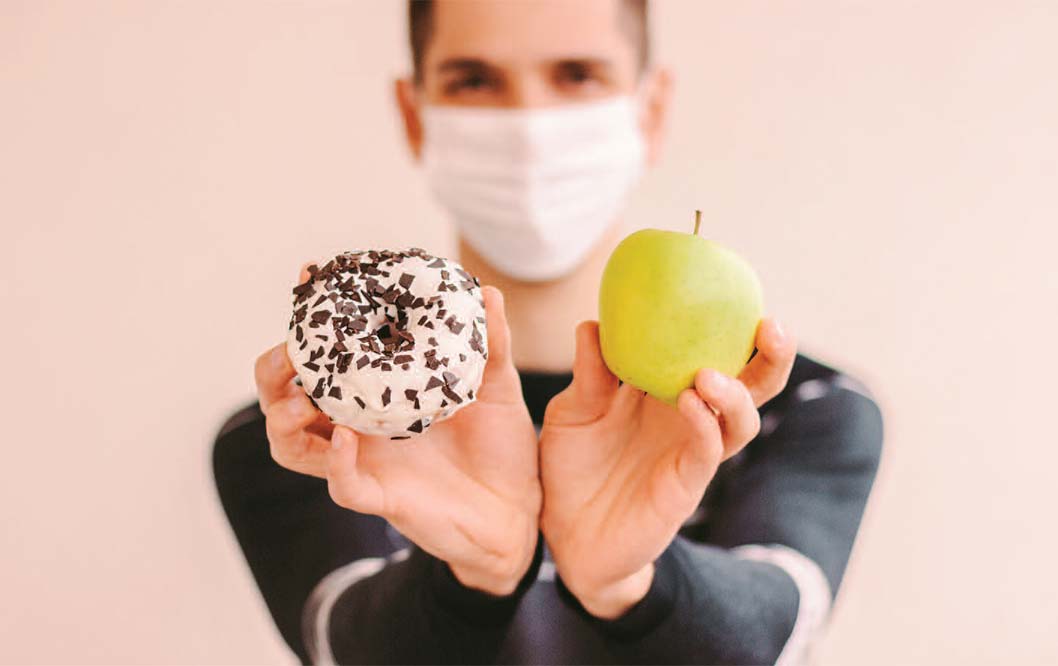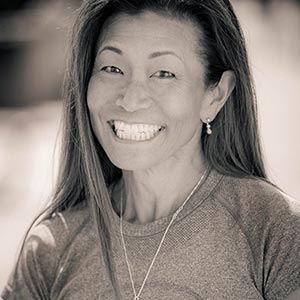Since the last publication of this magazine, to say our lives have been altered dramatically would be a huge understatement. Who would have thought that as I write this, there are many of us who are probably sitting on a much larger stash of toilet paper than we need, while learning how to launder face masks and Google home workouts in an attempt to lose the weight we’ve gained from all that baking.
Weighing the pros and cons of a Doordash membership and trying to refrain from that panicky feeling we get when our latest Netflix binge is nearing its final episode are small and insignificant manifestations of life under quarantine, when there are those amongst us who are desperately worried about how they are going to pay their next month’s rent or mortgage, or simply put food on the table for their families.
Eliminating all “non-essential” distractions has definitely put a spotlight on the things we really should not have to live without, particularly human interaction. I have a renewed appreciation for the physical closeness we used to share at will, with those we love and care about. Craving real, in-person conversations, I find myself actually making phone calls in lieu of texting or emailing just so I can hear a voice instead of staring at words on a screen. Before Covid-19, Zoom was a 1970s kid show or a comic book sound indicating speed, not the crucial conferencing tool that has become ubiquitous amongst businesses, families, schools, and even late night TV. After Covid- 19, the things I hope to never take for granted are hand-holding, high-fives, hugs, and well… just hanging out. A lot has changed indeed.
In keeping with the healthy nutrition theme of this column, what hasn’t changed, but should (and for reasons that this pandemic has glaringly brought to our attention), is the Standard American Diet (SAD). If there is a chance – and experts say it’s a good one – that there will be another wave of coronavirus infections in the fall, there is no time like the present to be proactive in minimizing our risks by improving our health. According to a CDC report in April, nearly 90% of patients hospitalized with coronavirus had one or more underlying health conditions, the majority of which can be attributable to our food choices.
Make no mistake – the heart disease, hypertension, kidney disease, diabetes and cancer that will hit you in the future and make you more vulnerable to diseases like Covid-19, are all being fed and formed by what you are eating today. We tend to believe that illness happens in the blink of an eye or from a fateful phone call from our doctor, but the truth is that arteries don’t thicken with plaque overnight. Cancer cells take time to multiply, divide and grow, as does the pancreas before it is steadily worn down from producing too much insulin. We don’t go to bed skinny and wake up obese. Now is not the time to be digging our own graves with our knives and forks. The good news is that just as food can be our surest and slowest form of poison, so too can it be our most powerful form of medicine. In his book How Not to Die, Dr. Michael Greger explains how lifestyle medicine pioneers such as Nathan Pritikin, Dean Ornish, and Caldwell Esselstyn Jr. took patients with advanced heart disease and put them on a diet similar to the ones followed by Asian and African populations who didn’t suffer from heart disease.
“Their hope was that a healthy enough diet would stop the disease process and keep it from progressing further. But instead, something miraculous happened. Their patients’ heart disease started to reverse. These patients were getting better. As soon as they stopped eating an artery-clogging diet, their bodies were able to start dissolving away some of the plaque that had built up. Arteries opened up without drugs or surgery, even in some cases of patients with severe triple-vessel heart disease. This suggests their bodies wanted to heal all along but were just never given the chance.”
Could it be this simple? It would, if simple was always easy, but unfortunately it’s not. The Standard American Diet of double bacon cheeseburgers, French fries, chicken nuggets and deep dish pizzas that we’ve exported all over the world is wreaking havoc on our planet and its inhabitants. It has become so heavily ingrained into societal norms and our daily habits that the thought of a predominantly plantbased diet rich in vegetables, fruits, beans, lentils, nuts, seeds and whole grains is often viewed as extreme, even though all the “best” diets from the longest-lived, healthiest populations in the world share this commonality. By choosing to ignore the toxicity of our food choices, we are inviting chronic disease and early death as we doom future generations to shorter life spans and decreased vitality.
As the world waits anxiously for approved drugs or vaccines to help treat or lesson the effects of Covid-19, here’s a novel-coronavirus thought: Why don’t we work on preventing the underlying causes and conditions which are causing the most mortality from this disease now? Our goal should be a pandemic of health. To accomplish this, we need to start changing what we put on the end of our forks immediately if we are to let our bodies heal from the damage we’ve already inflicted or to prevent a future diagnosis no one wants to hear. If we want to keep hugging those we love, we need to love those we want to hug by feeding them food that will not only add years to their lives, but life to their years.
Cindi is President and Founder of The Noble Path Foundation, a nonprofit 501(c)(3) dedicated to raising awareness on childhood obesity, T2 diabetes and the importance of sound nutrition and lifestyle choices for our youth. For sources and links to the statistics mentioned in this article, please visit our website and search for the article under our blog at www.thenoblepathfoundation. org


